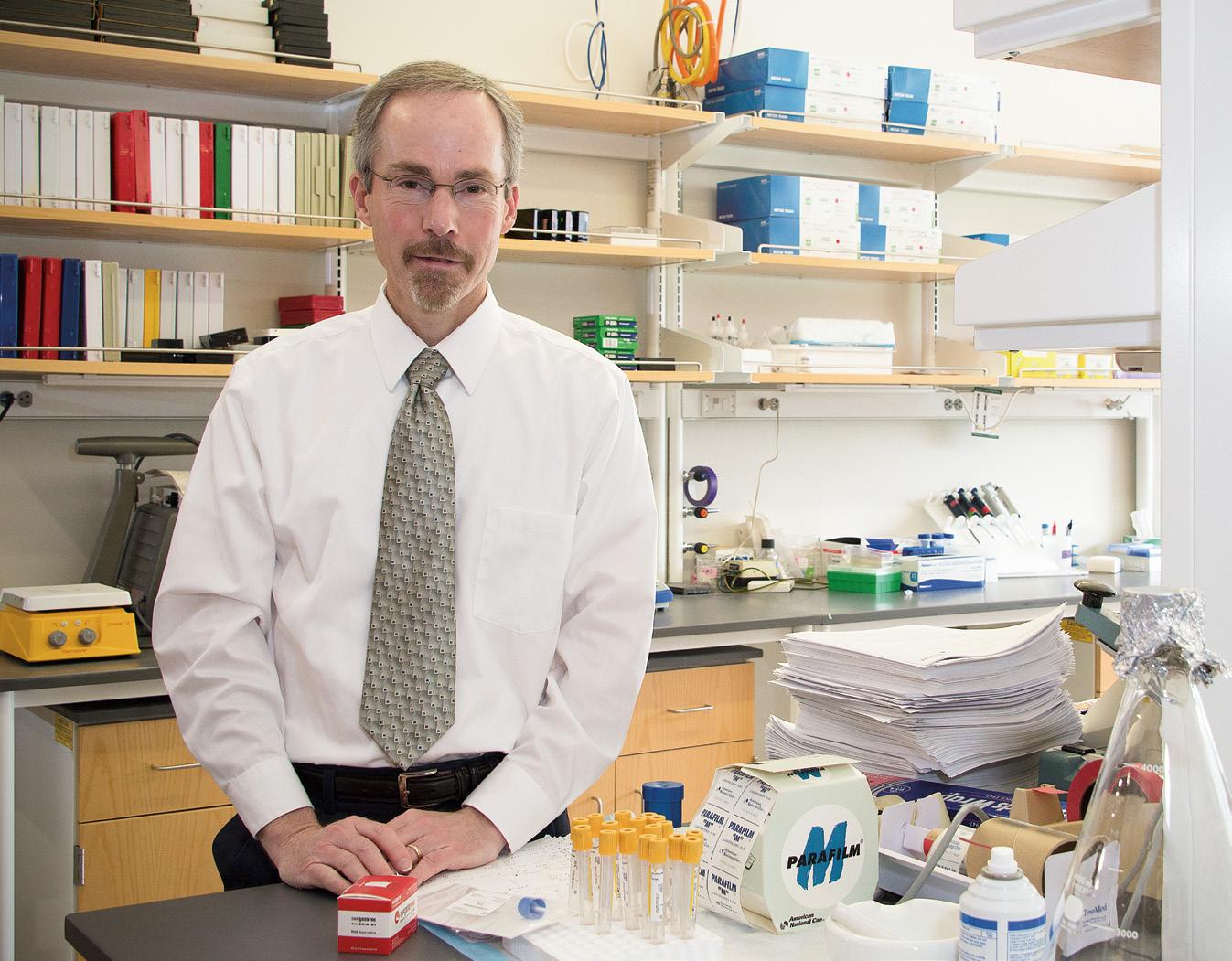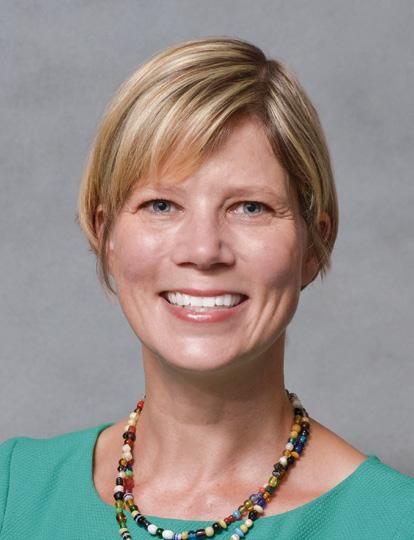
1 minute read
Upstate Research Leads to Patent for Saliva Concussion Test
Apatent for a saliva test used to analyze and predict the occurrence of mild traumatic brain injury and concussion symptoms that was developed through research at Upstate Medical University and Penn State College of Medicine has been awarded to Quadrant Biosciences, SUNY Research Foundation, and Penn State College of Medicine. Quadrant is a StartUP NY company based at the Central New York Biotech Accelerator.
The patented research was led by Upstate Professor Frank Middleton, PhD, and Steve Hicks, MD/PhD ’12, now at Penn State College of Medicine, and focused on young adult and pediatric populations, who are most at risk for head injuries. Hicks earned his doctorates and completed his residency at Upstate.
“Our motivation for developing this technology was to prevent further harm to the kids, athletes, and adults who experience mild, moderate, or repetitive head impacts,” says Middleton. “While most of the field has focused on peripheral blood measures, for the past decade we worked extensively to establish the utility of quantifying small RNA molecules in saliva as predictors of concussion or long-lasting symptoms from head impacts.”
The patent is a transformative piece of intellectual property that Quadrant is using to develop its Clarifi™ mTBI Saliva Test, expected to be available in late 2023. Quadrant has started discussions about potentially licensing this technology to third-parties.
This is the second patent awarded in less than one year to Quadrant and its partners. In March 2022, a patent was issued from the USPTO for its development of a saliva-based, epigenetic autism diagnostic aid; this same technology received FDA Breakthrough Device designation in April 2021.
Kathryn Anderson, MD, PhD, Named Onondaga County Health Commissioner
Upstate infectious disease expert Kathryn Anderson, MD, PhD, began a four-year term as Onondaga County health commissioner on November 7, 2022.
Dr. Anderson, associate professor of microbiology and immunology, was part of the Upstate team that put together the first model of how COVID-19 could spread through Central New York in the early days of the pandemic and became integrally involved helping Onondaga County officials in their response to COVID.
Anderson was recruited to Upstate in 2019 by Timothy Endy, MD, MPH, and Stephen Thomas, MD, who had been colleagues at the Walter Reed Army Institute of Research in Maryland. She also previously worked at the federal Centers for Disease Control and Prevention in Atlanta.
Anderson’s research includes field epidemiology and respiratory viral disease spread and transmission, including extensive research on Dengue, a mosquitoborne virus common in the Caribbean, Central and South America, Southeast Asia and the Pacific Islands.
Anderson earned her MD and PhD in epidemiology at Emory University and completed residency in internal medicine/global health at the University of Minnesota.











